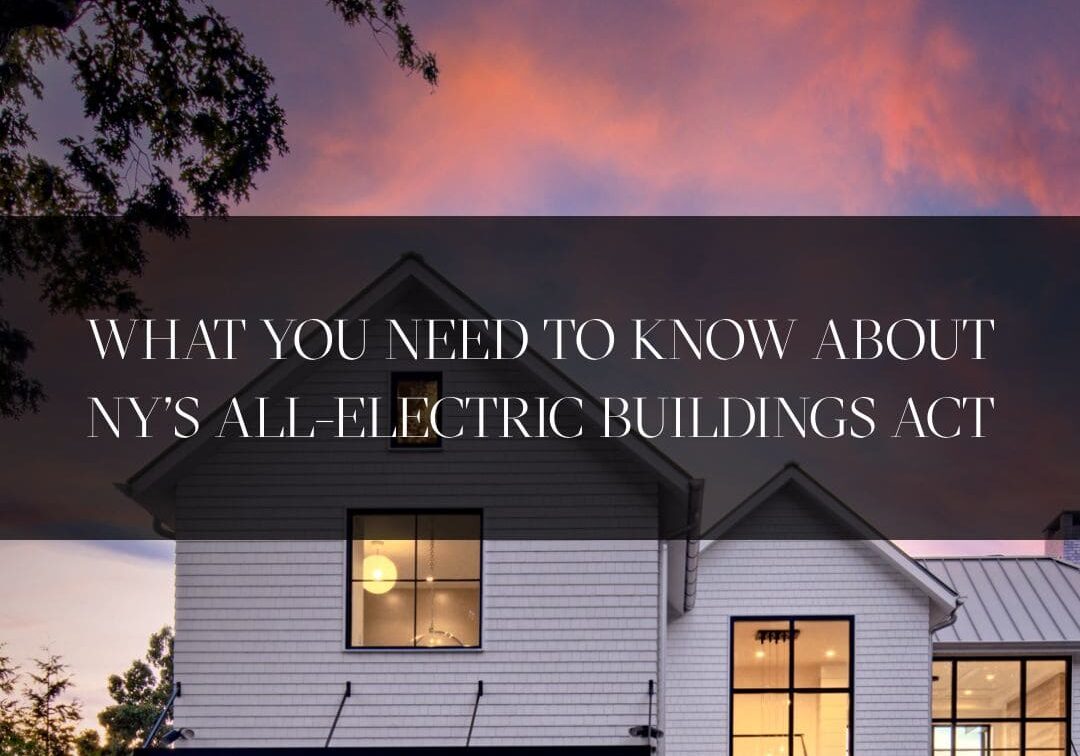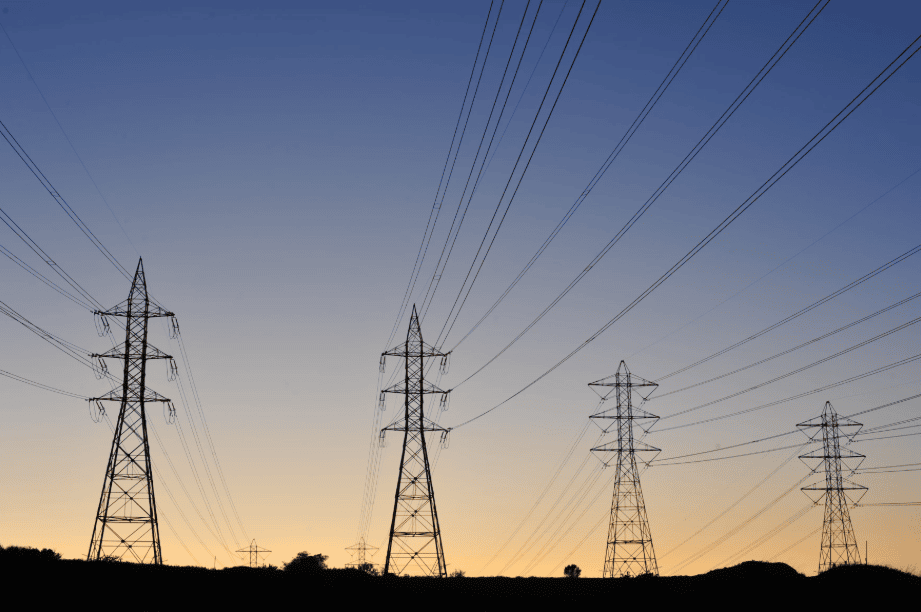What You Need to Know About New York’s All-Electric Buildings Act
New York’s new All-Electric Buildings Act marks a major shift in how residential buildings will be designed and constructed statewide. Beginning January 1, 2026, new low-rise buildings (seven stories or fewer) will no longer be permitted to include fossil-fuel systems for heating, hot water, or cooking—effectively mandating fully electric building design, with only limited exceptions….
Rachel Oberhausen
October 30, 2025
4 mins read

New York’s new All-Electric Buildings Act marks a major shift in how residential buildings will be designed and constructed statewide. Beginning January 1, 2026, new low-rise buildings (seven stories or fewer) will no longer be permitted to include fossil-fuel systems for heating, hot water, or cooking—effectively mandating fully electric building design, with only limited exceptions. For developers, architects, and homeowners planning projects in 2026 and beyond, this change introduces important design and permitting considerations. Here’s what you need to know—and how early planning can preserve flexibility and minimize disruptions.
Key Implications for Developers, Architects, and Homeowners
The All-Electric Buildings Act will fundamentally change how projects must be designed, permitted, and constructed. Whether you’re in early planning or already deep into design development, understanding these shifts is essential to avoiding costly delays or redesigns. Here are the most immediate implications to keep in mind:
Permit Cutoff Date Matters
Projects that secure a building permit on or before December 31, 2025, are exempt from the new mandate. This means you can still use natural gas, propane, or other fossil-fuel systems—as long as your permit is in hand before the deadline.
Design Impact
Starting January 1, 2026, any new low-rise residential building (seven stories or fewer) must be fully electric. Traditional fuel-based systems for heating, hot water, or cooking will no longer be permitted in most cases.
Systems Affected
This law will reshape mechanical design choices:
- HVAC systems must be electric—primarily heat pumps.
- Water heaters must rely on electric technologies.
- Cooking equipment will shift toward electric and induction cooktops.
These changes affect not just energy strategy, but also layout, panel sizing, and coordination with utilities—making early engineering input more critical than ever.

What’s Not Affected
While the All-Electric Buildings Act sets strict limits on fossil-fuel systems in new construction, there are important exceptions and gray areas that project teams should be aware of.
Backup Generators Are Still Allowed
Emergency backup power systems—such as propane or natural gas generators—are not restricted by the Act. This is a critical allowance for homes in coastal or storm-prone areas where grid reliability is a concern.
Some Unclear Areas Remain
The legislation does not yet address how outdoor cooking appliances, pool heaters, or spa heating systems will be regulated. Until further guidance is issued, these features may fall into a regulatory gray zone, requiring local code interpretation or updates from state agencies.
Planning Recommendations
With the all-electric deadline quickly approaching, proactive planning can make the difference between a smooth approval process and a costly redesign. Here are three key steps to stay ahead of the curve:
Act Now if You Want Fuel Flexibility
If your project relies on gas, propane, or oil systems, the clock is ticking. Submitting permit applications before December 31, 2025, preserves your ability to use fossil-fuel-based equipment—after that, only fully electric designs will be allowed.
Start Planning for Electrification
Designing all-electric homes requires a holistic approach. At DAE, we can help size and coordinate efficient electric HVAC systems, water heaters, and kitchen equipment—balancing performance, comfort, and aesthetic priorities for high-end residential builds.
Evaluate Electric Grid Availability Early
Though rare, some sites may face utility constraints that prevent timely electric service upgrades. In these cases, an exemption may apply—but it requires formal documentation from the local utility and sufficient lead time to process. Early utility coordination is essential.

Navigating Compliance with Confidence
The All-Electric Buildings Act represents a major turning point in how residential projects are designed and permitted across New York. At DiLandro Andrews, we help clients adapt seamlessly to these evolving code requirements—delivering smart, resilient, and sustainable systems that align with both regulatory demands and design vision.
Whether you’re fast-tracking permits ahead of the deadline or planning for a fully electric build, our team is here to support your project from concept through construction. Reach out to us today to schedule an early-stage consultation or feasibility review.